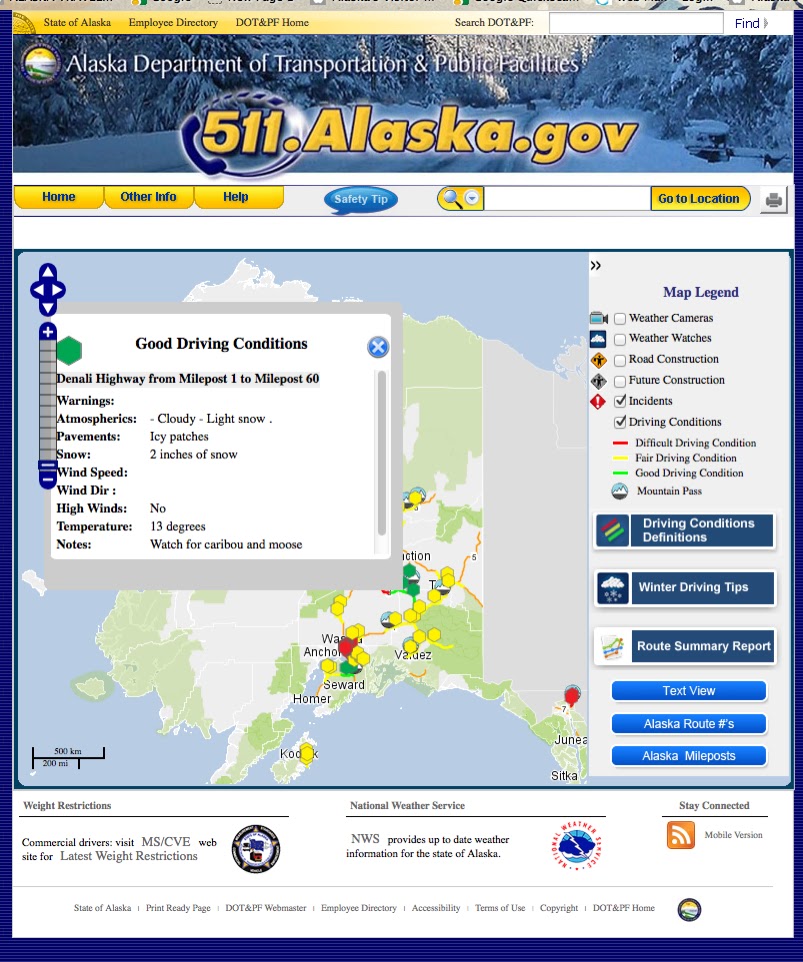Does The Legislature Have the Votes To Override the Governor's Veto?
Both Houses Of The Legislature Voted Overwhelmingly For A Bill That Spelled Relief For Alaska's Embattled School Districts Now is the t...
https://www.countryjournal2020.com/2024/03/does-legislature-have-votes-to-override.html
Both Houses Of The Legislature Voted Overwhelmingly For A Bill That Spelled Relief For Alaska's Embattled School Districts
Now is the time to make your voice heard because the Senate & House will meet next Monday, March 18th at 2:15 pm to try to override the Governor's veto.
 |
| House Chamber During House Joint Session Earlier in March. (Photo from Alaska State Legislature archives) |
Friday March 15, 2024
After a governor's veto, it's up to the Alaska Legislature to try and bypass it and make it law.
To Contact State Representative Mike Cronk's Office
Phone: 907-465-4527
To Contact State Senator Click Bishop's Office
Phone: 907-465-2327
Toll Free: 800-336-7383
The following story and analysis is from The Alaska Beacon:
As soon as Monday, lawmakers will have to decide if they will fund schools or stick with the governor
BY: JAMES BROOKS AND CLAIRE STREMPLE - MARCH 15, 2024
One day after he vetoed a major public education funding bill, Alaska Gov. Mike Dunleavy told reporters that he believes it’s time for the Legislature to move on from education and address other topics.
Legislators will have an opportunity to disagree, in a joint session of the state House and Senate tentatively scheduled for 2:15 p.m. Monday, with lawmakers planning to vote on a veto override.
It’s not clear whether the vote will succeed.
At stake in the bill are items that span the spectrum of education priorities: a historic increase to the per-student formula that funds schools, money for student transportation, a boost to the maximum internet speed available in rural school districts, a charter school coordinator position within the state’s education department, a new appeal mechanism for charter revocation, and increases to funding for homeschool students.
If the override succeeds, it’s not the end of the issue: Dunleavy said he’s likely to veto part or all of the public-school funding increase called for in the legislation, Senate Bill 140, setting up a potential later fight with state lawmakers.
“You could override and have this bill but it doesn’t guarantee money in the budget in the end,” he said.
Monday’s vote is uncertain
Under the Alaska Constitution, it takes 40 of 60 lawmakers to override the veto of a policy bill.
As of Friday afternoon, “we’re struggling to get the 40 votes on the veto override,” said Sen. Bill Wielechowski, D-Anchorage.
While the House and Senate passed SB 140 by a combined vote of 56-3, some Republicans who voted in favor of the bill have said that they will vote to sustain the governor’s veto, not override it.
Most members of the Alaska Senate’s 17-member bipartisan supermajority are expected to support an override, as are the 16 legislators in the House’s multipartisan minority caucus.
What isn’t clear is how many members of the 23-person, predominantly Republican House majority caucus will vote in favor of an override.
Rep. Stanley Wright, R-Anchorage, is a member of the majority and had spent time as a member of Dunleavy’s staff before he won election to the Legislature in 2022.
He’s also received a swell of public testimony from his Anchorage district, urging him to vote in favor of an override.
“I don’t know yet. I’m just still mulling it over,” he said on Friday. “I think I have a nice long weekend to get my head together and figure things out.”
Rep. Justin Ruffridge, R-Soldotna, is another possible swing vote and said on Friday that he doesn’t know whether there will be enough votes to override.
“I was actually pretty firmly in the position of trying to work on not getting to (a veto override). So I’ve got to kind of wrap my head around it,” he said.
Groups for and against the veto were planning intense lobbying pushes over the weekend. The labor federation Alaska AFL-CIO and education union NEA Alaska asked supporters to send letters, calls and texts supporting an override. The Alaska Council of School Administrators ran internet ads targeting possible swing legislators.
The Alaska chapter of Americans for Prosperity, a limited-government group, praised the veto and asked legislators to sustain it. Republican activist Judy Eledge circulated a message imploring friends to ask potential swing Republican votes to sustain the veto.
If the override succeeds
If 40 members of the House and Senate do vote to override, it would be the first time since Dunleavy became governor in 2018.
Turning SB 140 into law would permanently raise the base student allocation, or BSA, from $5,960 to $6,640. The BSA is the foundation of the state’s per-student funding formula, and the change would provide public school districts across the state $176 million more per year.
The increase is less than the amount of inflation since 2008, when the Legislature overhauled the BSA. That year’s BSA was $5,480. If it had been adjusted for the national inflation rate every year since, it would be $7,964.
Other changes to the funding formula would increase funding for correspondence programs used by homeschoolers. Another aspect of the bill would increase the amount of money paid by the state to transport students.
Sen. Jesse Kiehl, D-Juneau, said the current per-student formula underfunds schools, and whatever the Legislature decides, the consequences will reverberate throughout the community and economy.
“There’s no question in my mind why the state keeps losing working-age families. There’s no question in my mind why household creation in the state is down, why business creation is down,” he said. “You don’t do those things in a place where you fear for your children’s future.”
All of the increases would be subject to the state’s annual budgeting process, and legislators could choose to partially fund the formula, fully fund it, or overfund it, resulting in a one-time boost. A governor could also choose to use their line-item veto powers to cut school funding below what’s called for by the formula.
Dunleavy said on Friday that he’s inclined to do that this year, if there were to be an increase in the BSA.
“I think a lot of people who are following this issue may not realize that,” said Sen. Bill Wielechowski, D-Anchorage. “They may think that if the Legislature overrides the veto, then … people in the education community will feel like they have certainty, and the real idea of the matter is, that’s not the case. Because as the governor very clearly said, he still has the veto pen.”
Forty-five votes are needed to override a budgetary veto, an even higher hurdle than the one facing legislators on Monday.
“If people vote to override the bill, I hope they will vote to override any line item veto of an appropriation,” said Sen. Kelly Merrick, R-Eagle River. “Because if you say you’re going to support education, you can’t do one and not the other.”
The budgetary veto would last for one year. When legislators begin the budget process in 2025, they’d start with the formula rewritten by SB 140.
If the override fails
If the override fails, there would be no lasting increase to school funding, but lawmakers say they won’t give up on the idea of a one-year boost similar to the one they approved last year.
That funding would also be subject to the governor’s veto pen. Last year, Dunleavy cut half of the additional money that legislators approved, and the Legislature was unable to override that veto during a January vote.
Sen. Bert Stedman, R-Sitka and co-chair of the Senate Finance Committee, said he has already “penciled in” a $680 increase to the BSA in the Senate’s draft operating budget, regardless of what happens on Monday.
“There will be at least $680 for every student in the budget, as one-time funds at the very least,” said Sen. Löki Tobin, D-Anchorage. “What (Dunleavy) chooses to do with it at that point is, again, his prerogative, but that’s what I do recognize and believe will be the result of the efforts in this building.”
To get to that amount, both the Senate and the House would have to agree to it before sending the budget to the governor.
In addition to trying for a one-time bonus in the budget, legislators could also start over with what Rep. Tom McKay, R-Anchorage, called “Plan B” — a wholly new version of SB 140 in another bill. At least three bills, including one from Tobin, could serve as vehicles for that legislation.
Dunleavy said he supports a one-time increase to the state’s per-pupil funding this year, but didn’t name a precise figure and said he would need to take that up with legislators. He has also said he supports an increase to the BSA that is smaller than the one in the current version of SB 140.
The override vote is threatening to have consequences on other topics, several legislators suggested. The more time they spend on education, the less time is available to discuss other issues, including the impending Southcentral Alaska energy crunch.
“When SB 140 passed, you could feel it. There was a sense of relief … people were very happy. It’s like, ‘Oh, this is past us. We can move on, we can do other things.’ And now here we are, we’re back again,” Wielechowski said.
“My surprise is with the number of times that the governor said we’re moving on,” Ruffridge said, referring to the governor’s comments during a Friday news conference. “Because my sense is that there’s certainly not many others in the building who are ready to move on from that conversation.”
If legislators vote to sustain the veto, it could break relations among lawmakers. A vote to overturn it could fracture relations between the Legislature and governor.
“In my experience, people in this building take things very personally,” Wielechowski said.
Wright said that once tempers cool in the Capitol, lawmakers will turn their focus to other pressing issues. “At the end of the day, we all know that we’ve got to take care of energy, or Alaska is going to be in trouble,” he said.
To Contact State Representative Mike Cronk's Office
Phone: 907-465-4527
To Contact State Senator Click Bishop's Office
Phone: 907-465-2327
Toll Free: 800-336-7383















